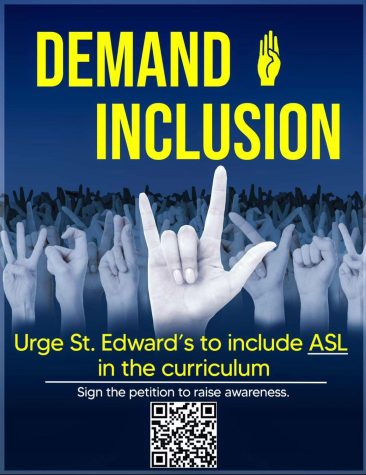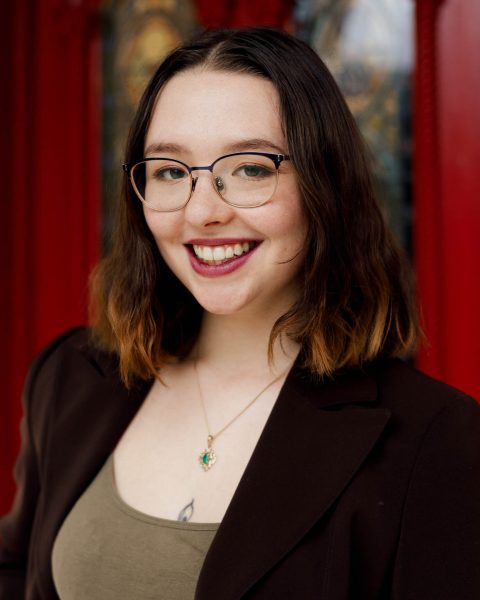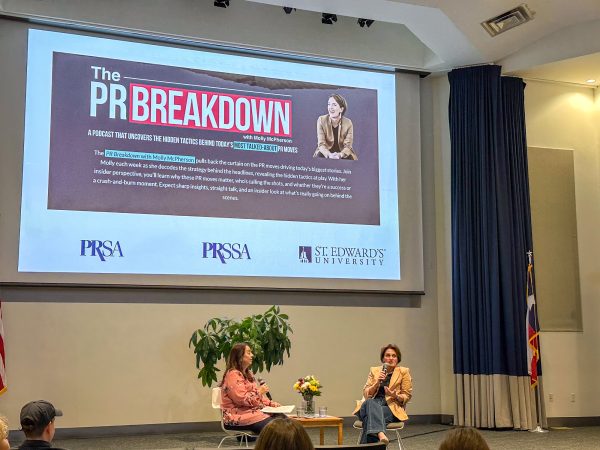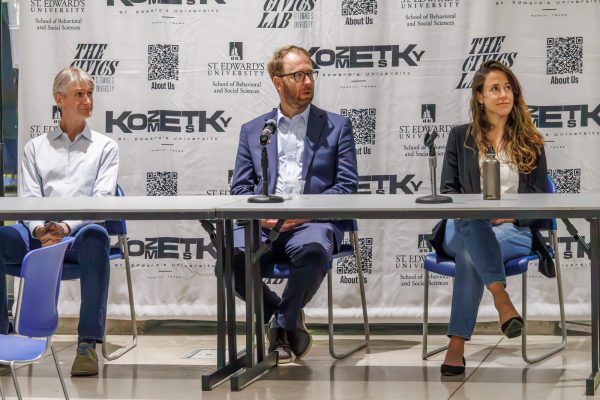Advocacy for inclusion of American Sign Language course continues through student-led online petition
Womack began learning sign language at a young age. She has continued to learn through ASL courses offered in high school as well as with Austin Community College.
In response to the university’s diversity and inclusion commitments, freshman Hailey Womack is petitioning for an American Sign Language (ASL) course to be included in the university’s curriculum, either as an elective or a foreign language credit.
“I’ve always had a passion for sign language,” Womack said. “I’ve kind of always had sign language in my life. Learning ASL really showed me that it’s looked over in the hearing world specifically. I think it’s important to be able to have a basic knowledge of ASL. I would love for all of the students here to just take ASL and understand basic sign language because it’s very helpful.”
This is not the first time a petition advocating for the inclusion of an ASL course has surfaced on campus. The Language, Literature and Culture department Chair, Philippe Seminet, said the argument that previously kept it from becoming a language course had to do with its American culture.
“ASL is unlike our modern language in that the culture that accompanies it is ultimately American, and hence not part of the broader ‘Global Perspectives’ that have been central to the mission and curriculum at St. Edward’s for many years,” Seminet said. “For this reason, the General Education faculty have opposed allowing students to come to St. Ed’s and take ASL as their modern language.”
There is the discussion of adding a course to the School of Health Sciences, according to Dean Nell, and Seminet believes ASL and Deaf culture may be a good fit there or within the social work or psychology curriculum.
“To advocate for ASL, I think you must demonstrate that there are enough students willing to sign up for ASL courses and that they are committed to it for its own sake rather than merely to replace the modern language requirement,” Seminet said.
Womack stresses the importance of including an ASL course since Deaf culture is prominent in Austin. About 20% of Texas’ deaf population resides in the Austin area. According to the Austin Chronicle, that percentage is estimated to be 50,000 people.
“There’s a completely different culture here in Austin that you have no idea about,” Womack said. “I just feel like [ASL] should be on campus because Austin is a Deaf community. Personally, I think it should be offered at any school. It should just be an option for everybody.”
Womack is working alongside recently elected Student Government Association (SGA) President Ella Ochoa to help aid avocation.
“I believe that as a Holy Cross Institution that values inclusivity, we should give our students the opportunity to learn sign language,” Ochoa said. “Not only would it benefit our students by providing disability cultural awareness and literacy, but it also helps students engage with the different communities that utilize sign language frequently.”
While there used to be an ASL Club on campus, it has recently been discontinued. Womack plans to reignite the club next fall.
“I’m trying to plan an event on campus where we have someone come to teach basic sign language and some Deaf culture just to raise awareness,” she said. “There’s so many different things that you just don’t understand if you’re not immersed in it.”
Digging deeper into the issue of inclusion, Seminet highlights the budgetary and enrollment constraints within the department. Because of low enrollment, the university is cutting Arabic and Chinese from the modern language curriculum.
“I have talked with Dean Nell, and unfortunately, we are unable at this time to begin offering a new language, such as ASL, within the School of Arts and Humanities,” Seminet said.
However, Ochoa believes that in her role as SGA president, she can help reach Womack’s goals by encouraging student demand for an ASL course.

“I can help facilitate a lot of the important conversations regarding academics,” she said. “We can prove collectively as a student body that the demand is high for sign language and it would be a sustainable program for our university.”
Womack is working on many other ways to spread awareness about the importance of including ASL in St. Edward’s curriculum and would feel very happy if it was achieved.
“Just knowing that it’ll bring more awareness to sign language, in general, is important, as well as opening people’s perspectives to having more variety,” she said.

Claire is a senior Communication major with a minor in Journalism continuing to dedicate her time growing and learning as a student journalist. Claire...









